The equipment leasing model allows service companies to reduce capex by only paying for certain equipment as it’s needed—as opposed to buying it and letting it sit idle when things slow down. A good deal for them.
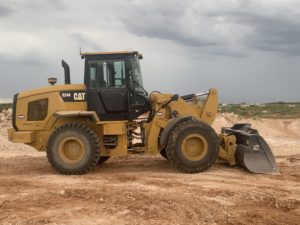 For leasing companies, in good times, this is fine. Once a forklift finishes at a job in the Delaware Basin, it goes back to the shop for an oil change and some bolt-tightening, then it rolls off to a job in the Midland Basin.
For leasing companies, in good times, this is fine. Once a forklift finishes at a job in the Delaware Basin, it goes back to the shop for an oil change and some bolt-tightening, then it rolls off to a job in the Midland Basin.
Of course, when a massive hit like COVID comes along, nobody prospers, and that’s certainly true of both service companies and rental yards. Two Permian stalwarts, ASCO and UltraQuip, have taken different paths toward coping with these challenges.
For Lee Hanson, West Texas Oilfield Representative for Rental Sales for ASCO, the roar of tractor-trailers hauling front-end loaders to distant jobs has been mostly replaced by crickets. In exactly 20 years with ASCO, he’s “seen it up and down and all around.” The last 18 months or so have been mostly down, with some signs of “up” coming along in recent months.
Nothing’s Certain but Uncertainty
He pointed to the November 2020 election results that put “a new administration” in power as a watershed for current and future oilfield planning. “That’s put a kink in a lot of people’s thinking. Nobody know what they’re gonna do” regarding construction. That means very little need for equipment rentals at the moment.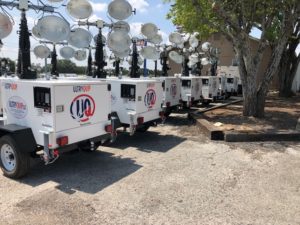
“It’s really hurt the pipeline and facility workers horribly,” he continued. He indicated that many area companies involved in construction of pipelines and facilities as “dead in the water,” because operators in midstreams are delaying projects as they watch regulatory, investment, and demand issues settle.
Current rentals for ASCO currently lean toward smaller equipment. “What we’re getting mostly right now is maintenance work, people working on an existing tank,” he said, listing man lifts and boom lifts and fork lifts as needed for this kind of work. Another popular job, pipeline maintenance and repair and the installation of small feeder lines, involves some excavators. “Most of these are one-week-or-less jobs—in and out, in and out.” In better times, “You send something out, you might not see it again for six months.”
As demand has dwindled, the competition has become more fierce, with price cuts further eroding the market. For ASCO, there’s only so low they can go. “We’re a family-owned company, and we have our rates to where we have a cellar, and we don’t go below that,” Hanson said.
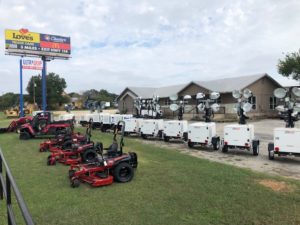 If a prospective client says they have a competitor doing a job for a certain low price, Hanson says he tells them ASCO has set their prices at the lowest profitable level, and they won’t get into a price war.
If a prospective client says they have a competitor doing a job for a certain low price, Hanson says he tells them ASCO has set their prices at the lowest profitable level, and they won’t get into a price war.
While most clients are service companies, ASCO does rent directly to a few midstream firms and the occasional E&P.
Hanson said as the pandemic progressed, the company auctioned off some of their equipment inventory. Now, as things begin to recover, they’ve ordered replacement machinery—but, as with many other industries, there is a backlog in shipping because factories are struggling to get needed parts.
On the positive side, Hanson said he’s heard that there are a lot of jobs on hold, ready to go when the outlook improves. “People are optimistic, and are hoping” for an upturn. “There’s a lot of work planned, but right now we’re taking it a day at a time.”
When work does come in, it’s more sudden than it used to be. Hanson said in good times he would get a heads-up a week or two before equipment was needed, and could plan for that. “Now I’m getting calls at 5:00 in the afternoon saying, ‘Lee, can you get me a boom? I’ve got a job starting in the morning.’ These companies are having to fly by the seat of their pants more than they are planning.”
Diversifying Can Help
Jeff Somers, president of Ultra Quip, says he is always analyzing the marketplace—in locations where he currently has yards, and in areas where he might want to open a new location. Diversifying into sales and rentals of generators and other large machinery in California started a few years ago, and led to some good success, although one venture began right as the pandemic quarantining was starting. That venture is still going in spite of those hiccups.
Spreading beyond his oilfield roots in the Permian Basin and Oklahoma led to the opening of a San Antonio yard that reached into the now-quiet Eagle Ford Shale, but it also opened the doors for construction equipment leasing.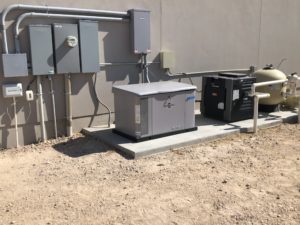
Unfortunately, nothing fared really well during the COVID shutdowns, Somers said. Lease costs in San Antonio became too expensive, so the company shifted gears. He bought less costly land in Boerne, a few miles west along I-10, and still serves San Antonio along with the Hill Country. There the company is renting UTVs for hunting and ranching as well as construction equipment.
UltraQuip also slashed staff, from 125 in 2019 to around 50 in the fall of 2021. An 80 percent drop in sales led to that and other changes. Reduced business in the Sooner state forced the closure of the Oklahoma City yard in 2020, one of the first cost-saving actions Somers took.
The bottom line is, “We’ve had better years, but we’re still in business and we’re working through it and we’re managing.” With reduced staff Somers said the remaining crew has worked harder than ever since the start of 2021.
Third quarter 2021 has actually seen an uptick, he noted. “Everybody’s hung in there with us, our banks hung in there with us, and now we’re looking at making a little money, at least by next year.”
Areas of improvement in 2021 include construction equipment rentals, which have doubled—although Somers cautioned that doubling from what they were in 2020 is not necessarily cause for popping champagne, but it is a start. “It doubled from not very high.” There are still many more tractors sitting in the yard than pushing dirt, so “We need to keep going.”
The generator-light tower rental and sales business has upticked 30-40 percent during the third quarter of 2021. This increase is fueled directly by recent growth in rig counts. “Our light plants sit on all these frac jobs,” Somers said, “when they’re drilling, then they complete the well, we’ve got 2-3 weeks of frac’ing. Our customers are taking these light plants and generators out and chasing the frac jobs from one to the next. So our business is directly proportional to the drilling business, there’s no doubt about it.”
What It Takes
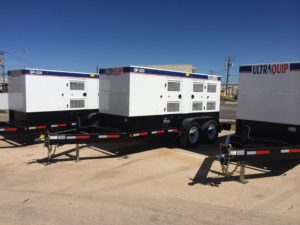 Somers pointed out that Ultra Quip’s West Coast sales business of engines and generators could be even better if factories could supply equipment for them to sell. “Now we’ve got customers back, but we’ve got manufacturers that are having trouble keeping up with demand that’s finally picking back up.” The shortage also applies to the UTVs and farm tractors for sale in San Antonio and elsewhere.
Somers pointed out that Ultra Quip’s West Coast sales business of engines and generators could be even better if factories could supply equipment for them to sell. “Now we’ve got customers back, but we’ve got manufacturers that are having trouble keeping up with demand that’s finally picking back up.” The shortage also applies to the UTVs and farm tractors for sale in San Antonio and elsewhere.
Because the equipment shortage is not unique to oil, gas and construction—just try to buy a new car, stove, or refrigerator without waiting for weeks or months—most customers are very understanding of the delays, Somers said.
Equipment rental, sales, and leasing is one of the more volatile oil patch industries. Those who survive must be nimble, save up some cash in the good times, and have stomachs of cast iron. This sector is not for the weak, but those who do survive, like ASCO and Ultra Quip, live to serve customers another day.
Paul Wiseman is a freelance writer in the oil and gas industry. His email address is fittoprint414@gmail.com.









